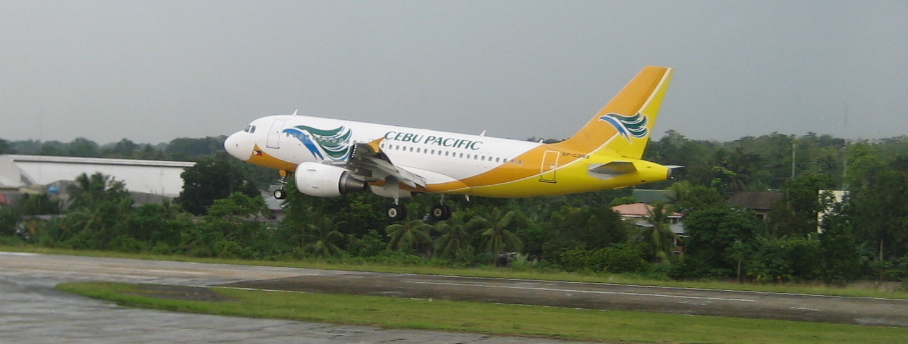
CORON, PALAWAN — Lawmakers have formally called for a congressional inquiry on allegations that Cebu Pacific prefers foreign pilots to their Filipino counterparts.
Cagayan de Oro Rep. Rufus Rodriguez and Abante Mindanao party-list Rep. Maximo Rodriguez, authors of House Resolution No. 1037, alleged that the airline has 45 foreign pilots in regular positions and has been employing foreign pilots since 2011, when the budget carrier embarked on a major expansion.
Cebu Pacific currently operates a fleet of 42 Airbus (10 A319, 29 A320 and 3 A330) and eight ATR 72-500 aircraft with another 12 Airbus A320 and 30 Airbus A321neo aircraft coming in between 2014 – 2021.
“With these new aircrafts, more pilots and airline crew will be needed which could mean more employment opportunities for our fellow Filipinos,” the Mindanao lawmaker pointed out.
Cebu Pacific is one of the carriers in the Philippine air transportation industry that offers low-cost services to more destinations and routes with higher flight frequency within the Philippines than any other airline, they noted.
“Unfortunately, Cebu Pacific has decided to hire foreign pilots because, according to them, they were unable to find suitable local candidates,” the authors added.
Another reason why the airline decided to hire foreign pilots, Rodriguez noted, is the alleged high cost of training Airbus-grade pilots which could go as high as at least USD 30,000 for a 40-day course.
The solons said there is a need to dig deeper into this matter and determine if there is indeed a shortage of Filipino pilots especially, in view of the fact, that demand for pilots in the Asia-Pacific region will continue to increase over the next two decades, with aircraft manufacturer Airbus forecasting that 34 percent of all airplane orders up until 2030 will be destined for the Asia-Pacific region.
Aside from the possibility that the reported decreasing number of pilots can be traced to the very expensive type-rating course for pilots, the authors stressed that “there is also a need to determine how we can help Filipinos who dream of becoming pilots in getting scholarships or loans which can help them pursue their dreams.”
One of the advantages of having Filipino pilots is that they are more familiar with the Philippines terrain than their foreign counterparts.
One instance would be Cebu Pacific’s Manila-Busuanga flight which this writer happens to be one of its passengers and the pilot was a foreigner.
When we landed in Busuanga airport one and a half hours delayed, majority of the passengers aboard complained on how rough we landed.
Some of them wondered maybe if it’s a Filipino pilot, he/she would be more familiar with the airport runway.